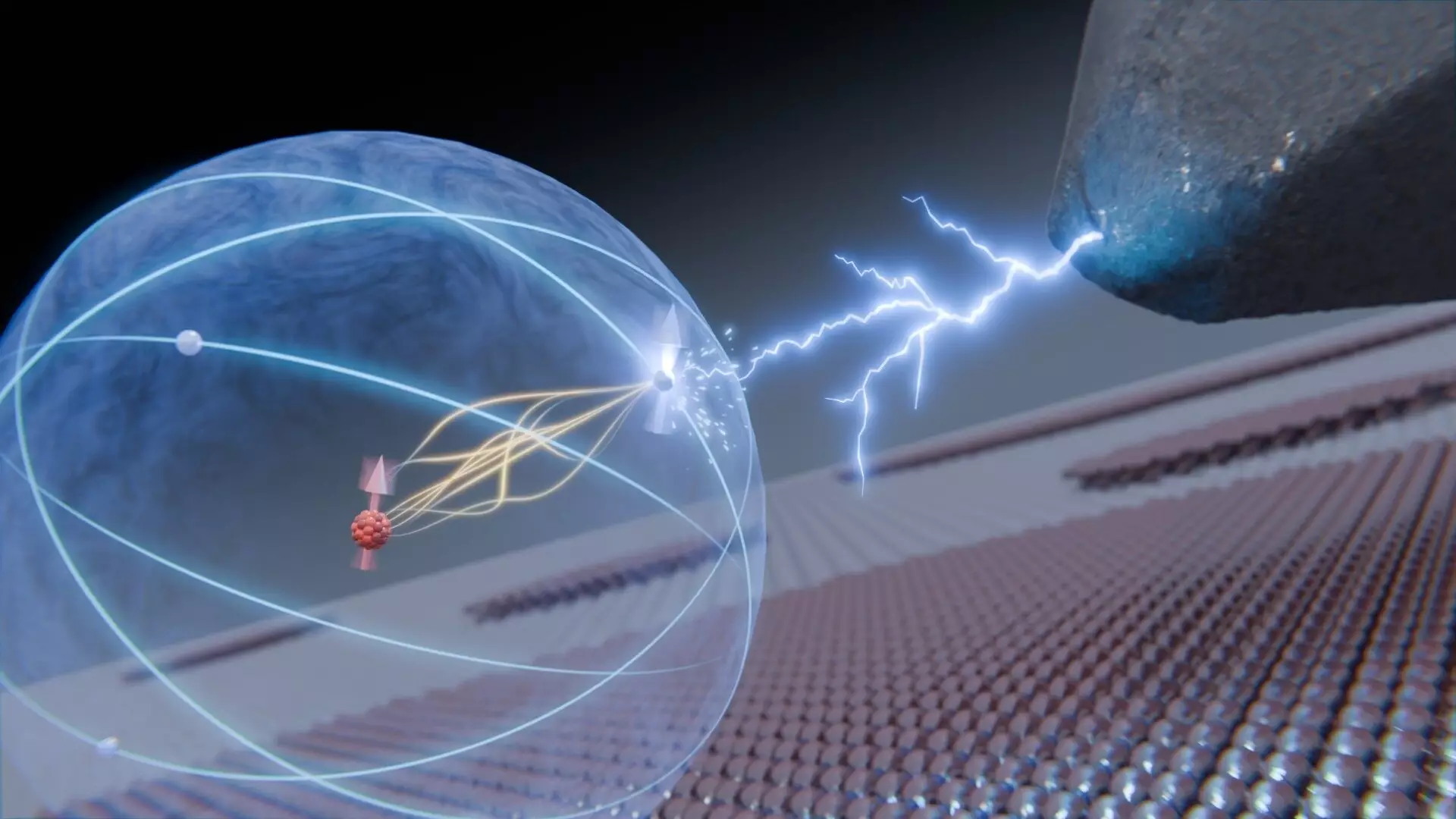At the forefront of quantum technology, researchers from Delft University of Technology in the Netherlands have achieved a remarkable feat by controlling movement within an atom’s nucleus. Their work, meticulously detailed in a recent publication in *Nature Communications*, indicates a significant leap towards harnessing quantum information in stable systems—specifically within atomic nuclei. By manipulating the correlation between the nucleus and the outermost electrons, this research opens up exciting avenues for quantum information storage mechanisms that could be more resilient against external perturbations.
Central to this study is the titanium isotope Ti-47, notable for having one neutron less than its more prevalent counterpart, Ti-48. The reduction in neutrons endows Ti-47 with slightly magnetic properties due to the nuclear spin, which resembles a compass needle in its ability to orient in various directions. This nuclear spin is crucial since it represents a key carrier of quantum information. The research team, guided by Sander Otte, diligently observed the behavior of a single titanium atom over several weeks, revealing the intricate interplay between the nuclear and electronic domains.
A pivotal aspect of this research revolves around the hyperfine interaction—an incredibly weak force that can nonetheless affect the nuclear spin based on the electronic spin’s configuration. Lukas Veldman, who recently defended his Ph.D. on this research, underscores the technical challenges in leveraging this interaction. The delicate balance requires not just a finely tuned magnetic field but also precise experimental conditions. Achieving the right environment allows the researchers to disrupt the electron spin and, in tandem, manipulate the nuclear spin—a process critical for the envisioned quantum storage mechanisms.
The methodology employed was rigorously designed, involving the application of a voltage pulse to disrupt the equilibrium of electron spin, temporarily causing both nuclear and electron spins to wobble in concert. Veldman’s calculations were pivotal in confirming these experimental findings, as they illustrated a remarkable correlation between predicted and observed behaviors. This affirmation is monumental: it suggests that quantum information is preserved during interactions between the electron and nucleus, indicating the potential of the nuclear spin as a robust medium for quantum storage.
What emerges from this research is not just an academic exercise but a profound insight into the potential applications in quantum computing and information technology. As Otte eloquently states, this experiment provides humans with unprecedented influence over matter at the atomic scale. The implications are far-reaching—this work can catalyze innovations in storage systems that can withstand external influences, thus paving the way for more reliable quantum computing architectures.
The Delft University study marks a significant milestone in the realm of quantum physics, showcasing how targeted manipulation of atomic structures can lead to groundbreaking advancements in technology. The excitement of influencing the state of matter at such a diminutive level captivates the imagination and emphasizes the endless possibilities that remain to be explored within this field.


Leave a Reply